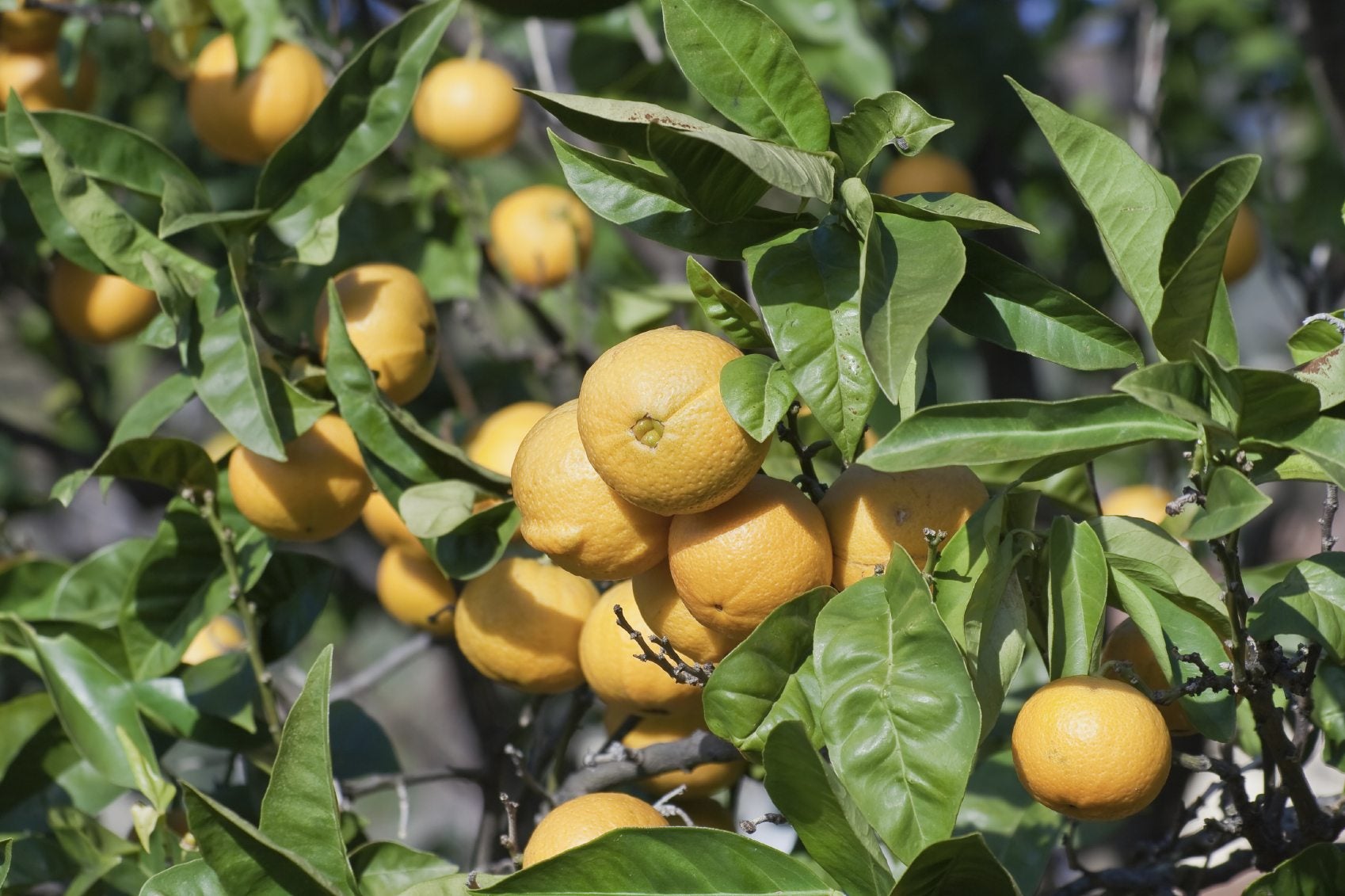
Citrus growers know going in that oranges are a fickle bunch and orange trees have their fair share of problems. The trick is to recognize the signs as soon as possible so the situation can be remedied. One of the most obvious signs of an orange in distress is orange leaf curl. Once you have spotted leaf curl in your orange trees, the obvious question is why are my orange tree leaves curling and is there a cure?
Why are My Orange Tree Leaves Curling?
Citrus trees may be affected adversely by pests, diseases, environmental conditions, and/or cultural practices. There are four major reasons for leaf curl in orange trees: pests, disease, water stress, and weather. Sometimes it’s a combination of all four.
Citrus Tree Leaf Curl Treatment and Pests
If you observe orange leaves that are curling, one culprit may be an insect pest, or rather many insect pests because they never seem to travel alone, do they? All of these marauders have a taste for the sap running through the foliage of your citrus orange tree:
Check your citrus for signs of these pests. If this appears to be the answer to your orange leaf curl, it’s time to do some damage. In this instance, citrus leaf curl treatment can lean in two directions. First of all, there are a number of predatory insects that can be introduced such as ladybugs, predatory wasps, and green lacewings. These guys will bring the pest numbers down in no time. If you choose, you can also use an insecticide to treat the pest problem. Apply horticultural oil, insecticidal soap, or neem oil to your orange tree on a cool, calm day.
Diseases Causing Orange Tree Leaf Curl
If your orange leaves are curling, the culprit might just be a fungal disease. Both bacterial blast and botrytis disease result in leaf curling. Bacterial blast begins with black spots on the petiole and moves on to the axil. Eventually, the leaves curl, wither, and drop. To combat this disease, apply copper spray to the infected orange. Botrytis disease infiltrates trees that have open wounds. A gray, velvety mold grows on the damaged area followed by leaf discoloration, curling, and twig dieback. Prevent this disease by preventing injury to the tree from machinery, frost, and rot. Apply a copper fungicide as a citrus leaf curl treatment before wet weather to prevent the fungus from reaching the blossom or fruit stage.
Other Reasons Why Orange Leaves are Curling
Water stress is probably the most obvious reason for leaf curl on a citrus. Lack of water will eventually affect the flowers and fruit which will drop prematurely. The amount of water an orange tree needs depends on the type, time of year, weather, and size of the tree. As an example, an orange tree with a 14 foot (4 m.) canopy needs 29 gallons (53 L.) of water a day in July when it is dry! Overwatering can affect the orange tree as well. Be sure to plant the tree in an area of excellent drainage. Remember, citrus trees don’t like overly wet feet. Weather may also affect the foliage of the orange. Of course, extreme hot spells will dry the plant out so you should water more frequently, especially if your tree is potted. Citrus is also susceptible to sunburn, which will also cause leaves to curl as well as peppering fruit with yellow or brown blotches. Cold weather may cause leaves to curl as well. Cover citrus trees if a cold snap is expected. Finally, sometimes orange foliage will cup downward in the late fall or early winter. This is normal and nothing to worry about, since new growth will emerge with ordinary shaped leaves in the spring.
Sign up for the Gardening Know How newsletter today and receive a free copy of our e-book "How to Grow Delicious Tomatoes".

Amy Grant has been gardening for 30 years and writing for 15. A professional chef and caterer, Amy's area of expertise is culinary gardening.
